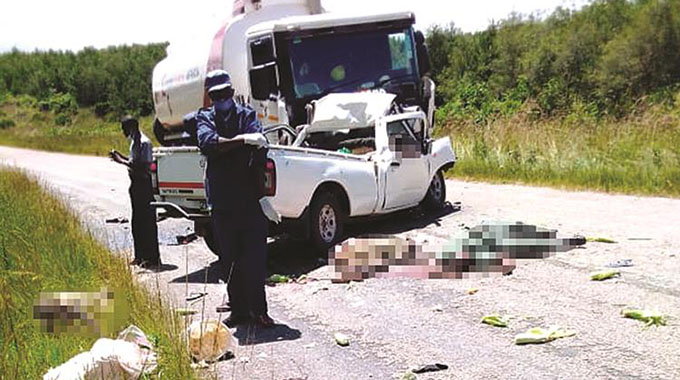Rural poultry projects to empower households

Cletus Mushanawani
Mutare Bureau
GOVERNMENT will soon introduce the Presidential Rural Poultry Scheme where each household will receive road-runner chickens as part of efforts to empower Zimbabweans.
This was said by Lands, Agriculture, Fisheries, Water and Rural Resettlement Minister, Dr Anxious Masuka, at the national launch of the Livestock Production Systems-Zimbabwe (LIPS-ZIM) project in Buhera yesterday.
“We will soon be launching the Presidential Rural Poultry Scheme where each household will receive road-runner chickens. As Government, we will aggregate the selling of the chickens to ensure that all people are economically empowered.
“Agriculture continues to occupy a dominant role in the recovery of our economy and has beforehand contributed up to 20 percent of the country’s Gross Domestic Product, 33 percent to formal employment, 65 percent of raw materials requirement to agro-industries and account for the livelihoods of 67 percent of the population which lives in rural areas as smallholder farmers.”
Dr Masuka said livestock and livestock products contributed significantly to the country’s economy, with cattle accounting for 35-38 percent of the GDP contributed by the agricultural sector.
“It is estimated that up to 60 percent of rural households own cattle, 70-90 percent own goats, while over 80 percent own chickens,” he said.
“Smallholder farmers have a crucial role to play within the Zimbabwe livestock sector.
“Despite livestock significance to rural livelihoods, it is disheartening that the sector is characterised by low productivity. Major constraints contributing to that low livestock productivity include feed unavailability and prohibitive costs, poor quality of animal genetics, animal diseases and frequent droughts.”
The LIPS-ZIM Project, which is being funded to the tune of €5 million through a grant to the Government of Zimbabwe, will be running for a 48 months from January 2020 to December 2023.
It will be rolled out to districts lying in natural regions 4 and 5 that include nine selected districts in six provinces, Manicaland (Buhera), Masvingo (Chiredzi), Matabeleland South (Beitbridge and Gwanda), Matabeleland North (Binga, Hwange and Nkayi), Midlands (Gokwe North) and Mashonaland East (Mutoko).
The main thrust of the LIPS-Zim Project seeks to adopt an adaptive research methodology approach through testing and developing technologies and models in ensuring climate smart feeding practices and disease surveillance in order to enhance livestock production and productivity in the country.
The approach will take into consideration Indigenous Knowledge Systems as one of the tools in increasing adoption of appropriate innovations to boost the livestock sector.
The adopted approach further seeks to develop project activities that will help tackle human nutrition challenges, increase market profitability, diversify investments of income from livestock and improve animal health.
The project also aims to assist farmers in setting up formal marketing infrastructure, as well as equipping them with marketing skills.
Dr Masuka said the LIPS-ZIM Project will develop innovations to combat livestock diseases, while at the same time developing detection mechanisms for controlling livestock diseases at the human-wildlife interface, where zoonosis is a major threat to livestock production.
“There has also been noted increases in tick borne mortalities in the country and disease transfer at the human-wildlife interface,” said Dr Masuka.
“The LIPS ZIM project is working with research institutes and universities on the Research and Development agenda. Research innovation outputs will capacitate extension officers with modern farming methods relevant to increase livestock production and productivity.”
Speaking at the same occasion, Minister of State for Manicaland Provincial Affairs and Devolution, Minister Nokuthula Matsikenyere, said livestock production should be taken as a business as it provided income and generated employment opportunities to the community.
“Animal management is key to improve animal health,” she said.
“Tick-borne diseases are causing high cattle mortalities and all this is because we lack dip tanks and dipping chemicals.”









Comments